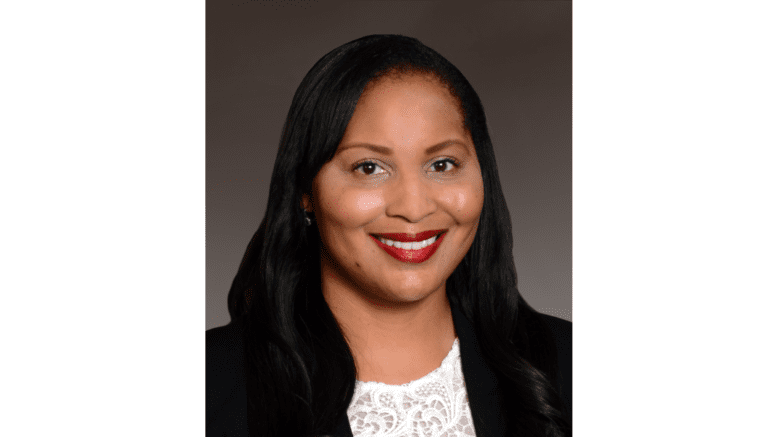NARAL Pro-Choice Georgia endorsed Georgia State Representatvie Renitta Shannon for Lieutenant Governor.
Shannon is running in a crowded May 24 Democratic primary for the position, which has no incumbent this year, since Lt. Gov. Geoff Duncan decided not to run for reelection. There are nine Democrats and four Republicans running for the office.
NARAL Pro-Choice Georgia issued the following press release announcing the endorsement:
Georgia — Today, NARAL Pro-Choice Georgia announced its endorsement of state Representative Renitta Shannon in her bid to become Georgia’s next lieutenant governor. Shannon has been a champion in the fight for reproductive freedom. During her time serving in the state legislature, Shannon sponsored legislation aiming to defund anti-choice fake health centers, successfully led the charge to expand postpartum Medicaid coverage from six to 12 months, spoke out against a dangerous bill that attempted to ban abortion at six weeks of pregnancy in Georgia, and shared her own abortion story.
NARAL Pro-Choice America President Mini Timmaraju released the following statement:
“We need champions like state Rep. Renitta Shannon by our side during this critical moment in the fight for reproductive freedom, and we’re excited to endorse her in the race to become Georgia’s next lieutenant governor. It’s no exaggeration to say that our fundamental rights and freedoms are directly on the line in this moment—but we are confident that we can count on Renitta Shannon to boldly fight to protect reproductive freedom for all Georgians as abortion rights and access face unprecedented threats.”
NARAL Pro-Choice America Southeast Campaigns Director Alicia Stallworth released the following statement:
“As reproductive freedom faces existential threats, Georgians need a lieutenant governor like state Rep. Renitta Shannon that they can rely on to safeguard their fundamental right to make their own decisions about their families and futures. With a direct challenge to Roe v. Wade that could end the constitutional right to abortion as we know it before the U.S. Supreme Court, electing champions like Renitta Shannon to state office is absolutely essential.”
State Rep. Renitta Shannon, candidate for Georgia lieutenant governor, released the following statement:
“I’m glad to have the support of NARAL in this race for lieutenant governor. Reproductive rights are facing enormous attacks from politicians who are determined to take away reproductive freedom and the right to make individual healthcare decisions. As lieutenant governor, it will be my priority to advance access to quality reproductive healthcare, which includes abortion as well as the ability for Georgians to deliver safe and healthy pregnancies.”
Listening to state leaders and recognizing the power and necessity of real on-the-ground investments, NARAL Pro-Choice America launched its Georgia chapter—NARAL Pro-Choice Georgia—in 2017 to help build the progressive momentum and infrastructure necessary to make Georgia a key battleground state. NARAL Pro-Choice Georgia spent years working alongside other in-state groups to lay the foundation to help flip Georgia blue, mobilizing tens of thousands of voters to turn out for reproductive freedom candidates.
This endorsement comes as NARAL Pro-Choice America is ramping up its work to elect candidates up and down the ballot during a critical moment in the fight for reproductive freedom. In the coming months, the U.S. Supreme Court will rule in Dobbs v. Jackson Women’s Health Organization—a case about Mississippi’s 15-week abortion ban that directly challenges Roe v. Wade. Should Roe fall, state leaders will be even more critical in the fight to protect and advance abortion rights and access. If the landmark abortion rights decision is undone, 28 states—including Georgia—are expected to take action to prohibit abortion outright, 13 of which already have “trigger bans” in place that would ban abortion automatically.
The anti-choice movement believes the end of Roe is on the horizon, and lawmakers hostile to reproductive freedom are going to unprecedented lengths to undermine access to abortion care. The people hurt most by abortion restrictions like these are those who already face barriers to accessing abortion care—including women; Black, Indigenous, and other people of color; those working to make ends meet; LGBTQ+ people; immigrants; young people; those living in rural communities; and people with disabilities.
